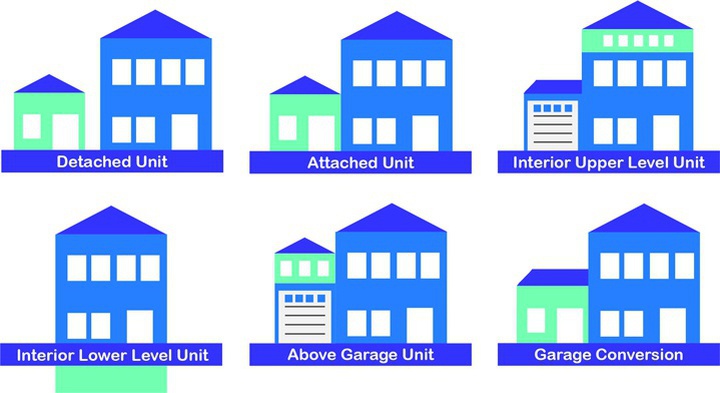Jessica Cejnar Andrews / Monday, Nov. 13, 2023 @ 3:51 p.m.
Del Norte Supervisors Adopt Accessory Dwelling Unit Regs That Staff Say Aim To 'Create Opportunities'

Photo: Joiedevivre123321 via Wikimedia Commons. Creative Commons License.
Four county supervisors followed Crescent City’s footsteps last week and approved regulations governing accessory dwelling units, or granny flats.
Community Development Director Heidi Kunstal said her staff didn’t review the city’s ordinance, but the county’s new regulations are consistent with state law.
Telling supervisors that she expects the state to continue enacting legislation regarding ADUs and zoning, Kunstal acknowledged a statement from District 2 Supervisor Valerie Starkey, who asked if she and her colleagues should consider the ordinance a living document.
“We were hoping for the state to complete some of the legislation, but it just kept on coming and kept on coming and it will continue to come,” Kunstal said. “What you have in your Board Report today is reflective of state law as of this summer. There may have been bills that have been signed in the last month by the governor, say in the last month, by the governor that have not been included. But for the most part it is up to date.”
Changes to the ordinance would go to the Del Norte County Planning Commission and then to the Board of Supervisors for approval, Kunstal said.
District 3 Supervisor Chris Howard was absent on Tuesday. He was in Southern California last week attending the Pacific Fisheries Management Council meeting.
According to Kunstal’s staff report, ADUs are residential units independent of a “principal dwelling” that contain sleeping quarters, a kitchen, bathroom, closet and a separate entrance. They can be either attached or detached from the main home and, since they’re considered independent dwellings and can have a separate electric meter, Kunstal said it would be up to the property owner if they wanted to have a second meter for an ADU.
Sewer hook-ups would be decided on a case-by-case basis, Kunstal said. If the facility is already connected to a public sewer system, a new connection may not be necessary, she said. and utility connections.
“The point is not to make things burdensome for people,” Kunstal said. “The point is to create opportunities, not restrict them.”
Under the county’s ordinance, the ADU regulations are for long-term rentals of 30 days or more, not for short-term rentals.
The county’s ADU ordinance comes after state lawmakers enacted nine pieces of legislation between 2016 and 2022 that aimed to further affordable housing development in California.
Del Norte County staff began drafting a local ordinance in 2017, though the Board of Supervisors at that time tabled it. County staff has since been following state law when it comes to ADUs.
According to the county's staff report, since 2017, it has received 51 applications for people wanting to develop ADUs. Del Norte County has received 13 ADU applications so far in 2023.
Accessory dwelling units can be used to meet Del Norte County’s regional housing needs allocation as set down in its 2022-2030 Housing Element.
According to the county’s housing element, enough land is needed to accommodate 386 living units outside Crescent City limits. Of that total, more than 40 percent will need to accommodate low-income individuals and families, according to a presentation Mintier-Harnish associate planner Ryan Lester gave to the Board of Supervisors in April 2022.
On Tuesday, Kunstal said the county’s ADU ordinance applies to properties outside the Coastal Zone. She said are considering ADU requests within the Coastal Zone on a case-by-case basis.
District 5 Supervisor Dean Wilson asked Kunstal if the ordinance would enable address the practice of some property owners charging rent for people to live in an RV in their backyard.
Kunstal said RVs and motorhomes aren’t considered ADUs and situations that Wilson described would be investigated by county code enforcement.
“If they fall under this category, we know there are either non conforming or legal non conforming ADUs or the equivalent that exist out in our community that haven’t been documented by our department and this would be an opportunity for us to take those in and recognize them and get credit from the state for those units,” Kunstal said. “But as far as recreational vehicles, motorhomes etc., if those exist out in the community those are not consider accessory dwelling units.”
The Crescent City Council adopted its ordinance governing accessory dwelling units in September.
CLICK TO MANAGE